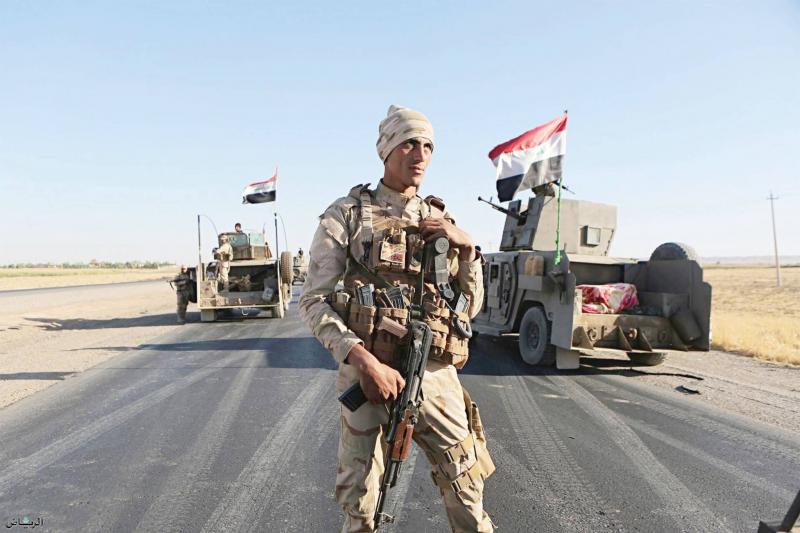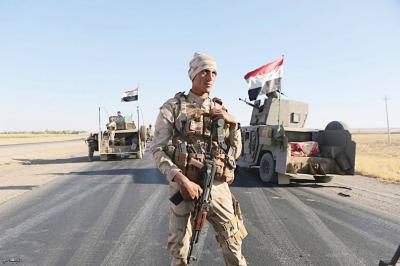In Iraq, five assassination operations targeting well-known figures were recorded over just three weeks, three of which resulted in the deaths of their targets, while two survived. These assassinations were accompanied by criminal acts, most notably what happened in the Baghdad Jadida and Muridi markets, indicating a deterioration in security that suggests the country has entered a "danger zone," with the spread of "level three" crimes, which are political crimes carried out through assassination, according to observers.
It is well-known that Iraq, since its establishment nearly a century ago, has rarely experienced periods of political and security stability. Attempts or operations of political assassination have occurred throughout the history of the Iraqi state, each having profound political ramifications on Iraq's situations and future paths. Among the three kings who ruled Iraq from 1921 to 1958, two were victims of assassination: King Ghazi (1939) and King Faisal II (1958), alongside the crown prince, Prince Abdul Ilah, who was assassinated in 1958 and served as an effective ruler of Iraq from 1939 to 1953. King Ghazi I was killed in a mysterious car accident in 1939, with most objective speculation pointing to British occupation forces being behind it. His son, King Faisal II, along with his uncle Prince Abdul Ilah and dozens of other members of the Iraqi royal family, were all murdered on the morning of the famous coup led by Officer Abdul Karim Qassem on July 14, 1958, in an event known as the "Rehab Palace Massacre." The stability that Iraq recently enjoyed may not last. Following a relative calm in skirmishes between armed factions and American forces, assassination operations have recently cast shadows over the streets of Iraq, creating terrifying scenes that threaten citizens' security, amid warnings of further security breakdowns in the coming days, according to observers.
The assassination operations began on February 7 this year when pediatrician Dr. Khaled Zahir was killed in central Baghdad. On February 18 of the same month, two relatives of the head of the al-Nabni alliance, Hadi al-Amiri, were also killed in the capital. The next day, well-known activist and blogger Aser al-Khafaji was kidnapped and murdered in Babil Province, affiliated with the Sadrist movement and working in the media sector of "Saraya al-Salam." On February 21, the former commander of the rapid response forces in Wasit province, Colonel Aziz al-Amara, was injured, and his brother was killed in an armed attack in the city of Kut. The latest case involved the former advisor to the presidency and head of the (Al-Mada for Media, Culture, and Arts) institution, Fakhri Karim, surviving an assassination attempt the day after the Amara incident, on February 22, when a pickup truck cut off the vehicle he was in and fired 11 bullets in the capital Baghdad.
In this context, security expert Saif Raad states that "the security situation indicates a failure in intelligence and security breaches, as five assassination operations, including those of Aser al-Khafaji in Babil, Aziz al-Amara in Kut, and targeting Fakhri Karim in Baghdad, all clearly show that these operations were meticulously planned by groups to incite chaos and create security tension." Raad explains that "assassination is any intentional killing for a specific reason, such as targeting a religious, political, cultural, intellectual, military, or economic figure, or perhaps individuals associated with those ideas to achieve strategic goals." He elaborates that "if Aser al-Khafaji's targeting aimed to provoke a clash with the Sadrist movement in Babil, this clash could escalate to other provinces, but the discord was averted following Mr. Sadr's tweet, which credits him for revealing this scheme." He adds, "The targeting of Aziz al-Amara has a military background, whereas the targeting of Fakhri Karim was due to his intellectual background, as he is a known figure with ideas and culture."
He points out that "all these operations have implications, and even the targeting of Hadi al-Amiri's nephew and son-in-law had political connections; therefore, everything happening indicates influences and messages suggesting that these incidents might be tied to international and intelligence agendas, and may reflect what occurred in forming provincial councils and the political dynamics and appointments involved." He continues, "Certain parties may seek to undermine Sudani's government through complex and intertwined affairs, all happening within a specific timeframe of three weeks as the operations escalated, indicating that there are hidden forces behind this escalation." Raad notes that "this does not encompass incidents in the Sadr City and Baghdad Jadida markets, as there is a difference between the assassination cases and what occurred in those markets, which are considered criminal acts or under the auspices of tribal revenge or other similar matters, indicating the presence of unregulated weapons."
He emphasizes that "there is negligence, and the security forces that bear the brunt of the situation should be held accountable. Also, the political side is responsible, as the law enforcement authority exercised by the security forces is tied to the political decision, which is part of the performance and assurance of the security forces' uncovering of the facts." He highlights that "the attempt to assassinate Fakhri Karim occurred very close to the Green Zone, only hundreds of meters away, which is alarming. Despite more than three days passing since the incident, neither the Ministry of Interior nor the Baghdad Operations Command has revealed the perpetrators, which creates ambiguity about the events."
Raad expressed fears about "the use of state weaponry and vehicles, as happened previously in targeting Hisham al-Hashimi or Ahmed Abdel-Samad, thus the results of what transpired must be made public to reassure the Iraqi community." On February 23, Interior Minister Abdul Amir al-Shammari directed the formation of a specialized security task force to investigate the "criminal" elements that targeted the vehicle of Fakhri Karim in the al-Qadisiyyah area of Baghdad, from which he survived this "treacherous" incident. Shammari stressed in a statement the need to intensify security and intelligence efforts to apprehend the perpetrators and bring them to justice.
Fakhri Karim, head of the Al-Mada for Media, Culture, and Arts, survived an assassination attempt in the al-Qadisiyyah area within the capital Baghdad while returning with the institution's general manager, Ghada al-Amili, from the International Book Fair in Iraq. According to a statement from Al-Mada, unidentified gunmen riding two pickup trucks attempted the assassination, obstructing the road to stop Fakhri Karim's vehicle and then opened fire on his car with light weapons before fleeing the scene. The institution deemed the "malicious and failed assassination attempt" as confirmation that dark forces are displeased to see Iraqis joyful and engaging with significant cultural events like the International Book Fair, calling for a swift investigation to uncover the perpetrators and their backers and present them to justice quickly.
**Security forces are active to apprehend the criminals.** The Iraqi Ministry of Interior confirmed that all those involved in the two incidents that occurred in the Baghdad Jadida area and Muridi market in eastern Baghdad have been arrested. The ministry's spokesperson and the security media cell, Brigadier General Muqdad Miri, stated in a press statement that all those implicated in the events in Sadr City and Baghdad Jadida are now in the grip of justice. Miri confirmed that the ministry had arrested everyone involved in the Sadr City incident as well as the Baghdad Jadida incident that occurred days prior, indicating that necessary legal measures have been taken against all accused individuals.
A person was killed during an exchange of gunfire in Muridi market in eastern Baghdad, before the perpetrators left him bleeding on the ground and took his weapon and fled, in a shocking scene. Recently, in Baghdad as well, two people were killed in an armed attack in Baghdad Jadida, later revealing that the perpetrators were two high-ranking officers, one of whom held the rank of colonel and worked in the office of the Minister of Interior. These events come at a time when the Iraqi Ministry of Interior is launching initiatives to control weapons in the hands of the state, including allocating a budget of one billion dinars (about $7.63 million) for each province, aimed at purchasing medium weapons from citizens.




